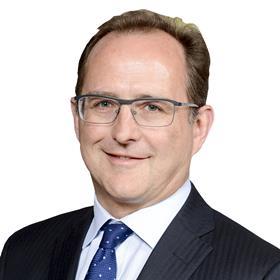As 2019 fades from view and we look back at it with an element of hindsight, I don’t think history is going to remember it as the year Brexit became a certainty, or even for England finally winning the Cricket World Cup – but as the year that the climate crisis became real.

A combination of direct action by Extinction Rebellion and global catastrophes (not just Australia’s wildfires, but unprecedented high temperatures across much of Europe) moved addressing one’s environmental impact from a peripheral issue to a central one, that Property Week and UKGBC are calling on the industry to address via The Climate Crisis Challenge, which was launched last week.
Before, some would only consider taking sustainable action if it didn’t have a cost attached or disrupt their lives or affect the bottom line. Now it’s front and centre of decision-making on both a personal and a professional front.
Most organisations accept action is a necessity, although it may well cause initial disruption; ignoring the problem may save money in the short term, but it’s a false economy if we end up with an overheated planet. Reducing your environmental impact isn’t a secondary reputational issue: it’s now a cold, hard financial conversation.
With some 40% of UK carbon emissions arising from property, our industry has long acknowledged the scale of the challenge. But with the government’s declaration of a climate emergency and its commitment to achieving net zero carbon ‘zero carbon’ by 2050, we now have a clear timeline.

In a corporate capacity, this involves addressing our own environmental impact: we acknowledge that Savills must do more to reduce our footprint and are taking steps to do so. But on a wider front, it’s about finding solutions to fully address the industry’s problem, not just looking at ways to quickly cut carbon, which may look good in the short term but have broader environmental ramifications when you consider the knock-on effects. It’s about arriving at the best, long-term answers we possibly can given current resources.
Given my background in development projects, my focus is very much on how we can advise clients on the delivery of schemes today that make great places and enhance the environment rather than create negative impact.
On this, we can’t look at anything in isolation: to succeed we need to harness the rural sector to help us. Sourcing renewable energy, designing in sustainable transport and eliminating waste streams all help remove emissions. However, even using carbon-neutral low-carbon materials such as timber or hempcrete during construction leaves residual emissions, which creates a need for new woodland or other measures to offset carbon.
The biggest challenge, though, is not new development, where environmental sustainability neutrality can be achieved, albeit at a cost, but stripping emissions out of existing buildings. In the vast majority of cases, it’s going to be better to retrofit to improve environmental performance than to knock down and start again, but we have yet to arrive at a fully effective and financially viable solution.
Addressing the climate crisis is no doubt a massive challenge, but we now understand and accept it, and are committed to doing what we need to do to sort it out. By sharing best practice and dedicating time and energy to it as an industry, I’m confident that if 2019 was the year the world accepted the crisis, 2020 will be seen as the year we really started making progress resolving it.
Richard Rees is managing director at Savills UK





























No comments yet